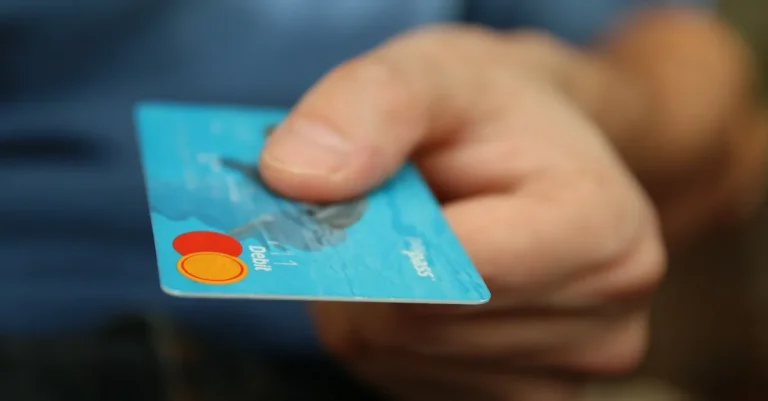Can A Minor Own A Car In California? Everything You Need To Know
For many teenagers, getting their own car is a rite of passage. However, underage drivers still need to follow laws around ownership and liability in California. So can someone under 18 legally own a car in the state? The quick answer is yes, it is possible for minors to own vehicles if certain conditions are met. However, there are important regulations and financial considerations for teens and parents to understand first.
In this comprehensive guide, we will explore all aspects of vehicle ownership laws for minors in California, including titling and registration, insurance requirements, and steps parents/guardians must take for a safe and legal transfer of ownership.
California Laws on Minor Car Ownership
Titling and Registration Requirements
When it comes to minor car ownership in California, there are specific laws and regulations in place to ensure the safety and well-being of young drivers. In terms of titling and registration, minors are allowed to own a car in California, but there are certain requirements that must be met.
First and foremost, a minor must have a valid driver’s license in order to own a car in California. This means that they must go through the necessary steps to obtain a driver’s license, including passing both a written and practical driving test.
Once they have their license, they can then proceed with the process of titling and registering the vehicle in their name.
In addition to a driver’s license, a minor must also have parental or guardian consent. This means that the parent or guardian must provide written permission for the minor to own and register a car. This requirement helps to ensure that the minor has parental support and guidance throughout the car ownership process.
Furthermore, the minor must have the financial means to purchase and maintain the vehicle. This includes being able to pay for the initial purchase price of the car, as well as ongoing expenses such as insurance, registration fees, and maintenance costs.
It’s important for minors to understand the financial responsibilities that come with owning a car.
View this post on Instagram
Insurance Requirements
When it comes to insurance requirements for minors owning a car in California, there are a few key points to keep in mind.
Firstly, all drivers in California are required to have auto insurance. This includes minors who own a car. The minimum insurance coverage required by law in California is liability insurance, which covers bodily injury and property damage that you may cause to others in an accident.
Secondly, insurance rates for minors are typically higher compared to adult drivers. Insurance companies consider minors to be higher-risk drivers due to their lack of driving experience. Therefore, premiums for car insurance tend to be higher for minors.
It’s important for minors and their parents or guardians to shop around and compare insurance quotes to find the best coverage at the most affordable rates.
Lastly, it’s important to note that insurance companies may have additional requirements or restrictions for minors owning a car. For example, some insurance companies may require that a parent or guardian be listed as a co-owner or co-insured on the policy.
This is to ensure that the adult can provide guidance and oversight to the minor driver. It’s important to review the specific requirements of different insurance companies when insuring a car owned by a minor.
Transferring Ownership to a Minor
When it comes to transferring car ownership to a minor in California, there are a few options available. The most common methods include gifting a car or co-signing the title.
Gifting a Car
Gifting a car to a minor is a popular option for parents or guardians who want to transfer ownership. However, it’s important to note that there are certain requirements that must be met. The minor must be at least 15 ½ years old to have a valid California learner’s permit and 16 years old for driver’s license.
Additionally, the gifter must fill out the appropriate paperwork with the California Department of Motor Vehicles (DMV) to transfer the title to the minor’s name.
It’s worth mentioning that when gifting a car to a minor, it’s important to consider the financial responsibilities that come with owning a vehicle. Insurance, maintenance, and other expenses should be discussed and planned for accordingly.
Co-Signing the Title
Another option for transferring ownership to a minor is by co-signing the title. This means that both the minor and the adult co-owner will have their names on the title. This option can be beneficial for minors who may not meet the age or licensing requirements to own a car on their own.
When co-signing the title, it’s important to understand that both parties will share legal and financial responsibilities. The minor will have the opportunity to establish credit and learn about the responsibilities of car ownership, while the adult co-owner will provide guidance and support.
It’s important to note that transferring ownership to a minor can have legal and financial implications. It’s recommended to consult with an attorney or visit the California DMV website for more detailed information on the requirements and processes involved.
View this post on Instagram
Getting Insurance for a Minor-Owned Vehicle
When it comes to owning a car as a minor in California, it’s important to understand the insurance requirements. While minors are legally allowed to own a car in California, they will need to have proper insurance coverage to drive legally on the roads.
Here are some important considerations when it comes to getting insurance for a minor-owned vehicle.
Finding Affordable Coverage
Finding affordable insurance coverage for a minor-owned vehicle can be a challenge, as insurance companies often consider young drivers to be high-risk. However, there are ways to mitigate the cost and find affordable options:
- Shop around and compare quotes from different insurance providers. Each company may have different rates and discounts available.
- Consider adding the minor to an existing family policy. This can sometimes lead to lower premiums since the primary driver is typically the parent or guardian.
- Encourage the minor to maintain good grades. Many insurance companies offer discounts for students with a GPA above a certain threshold.
- Consider taking a defensive driving course. Completing a recognized driver’s education program can sometimes lead to lower insurance rates.
By exploring these options, it is possible to find affordable insurance coverage for a minor-owned vehicle in California.
Adding a Teen to Parents’ Policy
One common approach to insuring a minor-owned vehicle is to add the teen to their parents’ existing insurance policy. This can often be a more cost-effective option compared to getting a separate policy for the minor. However, it’s important to keep a few things in mind:
- Impact on Premiums: Adding a teen driver to a parents’ policy will likely increase the overall premium. Insurance companies consider teenage drivers to be higher risk, which can result in higher rates.
- Primary Driver Designation: When adding a teen to a parents’ policy, it’s important to designate the primary driver of the vehicle accurately. If the teen is the primary driver but is listed as an occasional driver, it can lead to issues with the insurance company in the event of a claim.
- Compliance with California Law: As a minor, it’s crucial to comply with California‘s insurance laws. Ensure that the insurance coverage meets the state’s minimum requirements for liability coverage.
Adding a teen to parents’ policy can provide a more affordable insurance option, but it’s essential to navigate the process carefully to ensure proper coverage and compliance with the law.
Registering and Operating a Minor-Owned Car
When it comes to owning a car as a minor in California, there are a few important steps to take. One of the first things a minor will need to do is apply for registration of the vehicle. This can be done by visiting the local Department of Motor Vehicles (DMV) office or by completing the registration process online.
Applying for Registration
Applying for registration as a minor-owned car is a relatively straightforward process. The minor will need to provide certain documents, such as proof of insurance, a completed application form, and payment for the registration fees.
Additionally, both the minor and the parent or guardian co-signing the registration documents will need to provide their identification, such as a driver’s license or ID card.
Once all the required documents are submitted, the DMV will process the application and issue the registration documents and license plates for the vehicle. It’s important to keep these documents in a safe place as they will be needed to prove ownership of the car.
Complying with Graduated Licensing Laws
While a minor can own a car in California, they must also comply with the state’s graduated licensing laws. These laws outline specific restrictions and requirements for drivers under the age of 18.
For example, during the first year of holding a driver’s license, a minor is not allowed to drive with passengers under the age of 20, unless accompanied by a licensed adult who is at least 25 years old.
Additionally, there are restrictions on driving during certain hours, typically late at night, to ensure the safety of young drivers.
It’s important for minors and their parents or guardians to familiarize themselves with these laws to ensure compliance and avoid any potential penalties.
View this post on Instagram
Financial and Legal Liability Considerations
When considering whether a minor can own a car in California, it’s essential to take into account the financial and legal liability considerations involved. These considerations include assessing affordability, understanding liability risks for parents, and establishing a legal contract.
Assessing Affordability
One of the primary factors to consider before allowing a minor to own a car is affordability. Purchasing a vehicle comes with various expenses, including the initial cost, insurance premiums, maintenance, and fuel costs.
It’s crucial to evaluate whether the minor has the financial means to cover these expenses. Parents should have an open and honest conversation about the financial responsibilities associated with car ownership and ensure the minor understands the financial implications.
Liability Risks for Parents
Parents should also consider the liability risks they may face if they allow their minor child to own a car. In California, parents can be held legally responsible for the actions of their minor children, including any accidents or damages caused while driving.
It’s important to understand that if a minor is involved in an accident, the parents’ assets may be at risk if they are found liable. To mitigate these risks, parents should consult with an attorney and explore options such as increasing insurance coverage or establishing a trust to protect their assets.
Writing Up a Legal Contract
Another important consideration is to create a legal contract between the parents and the minor regarding car ownership. This contract should outline the responsibilities and expectations for both parties.
It may include details such as who is responsible for the car’s expenses, maintenance, and insurance. Additionally, the contract can include provisions that hold the minor accountable for their actions on the road and establish consequences for any violations or negligence.
Consulting with a legal professional experienced in contract law can help ensure that the contract is legally sound and provides adequate protection for all parties involved.
Conclusion
While allowed under certain conditions, minor car ownership in California comes with major legal and financial implications. We hope this guide has clearly outlined the process and responsibilities involved so parents and teens can make an informed decision.








